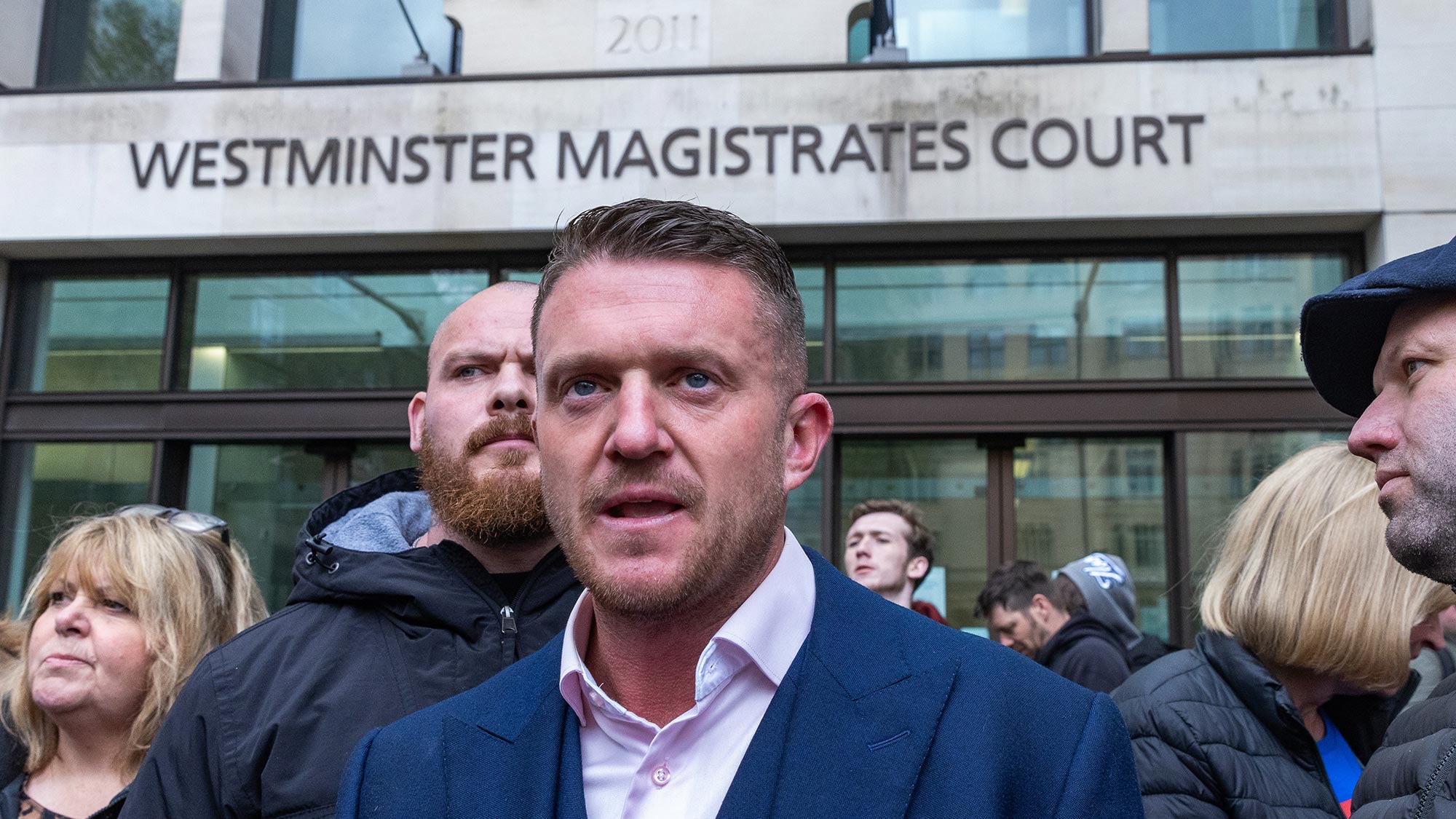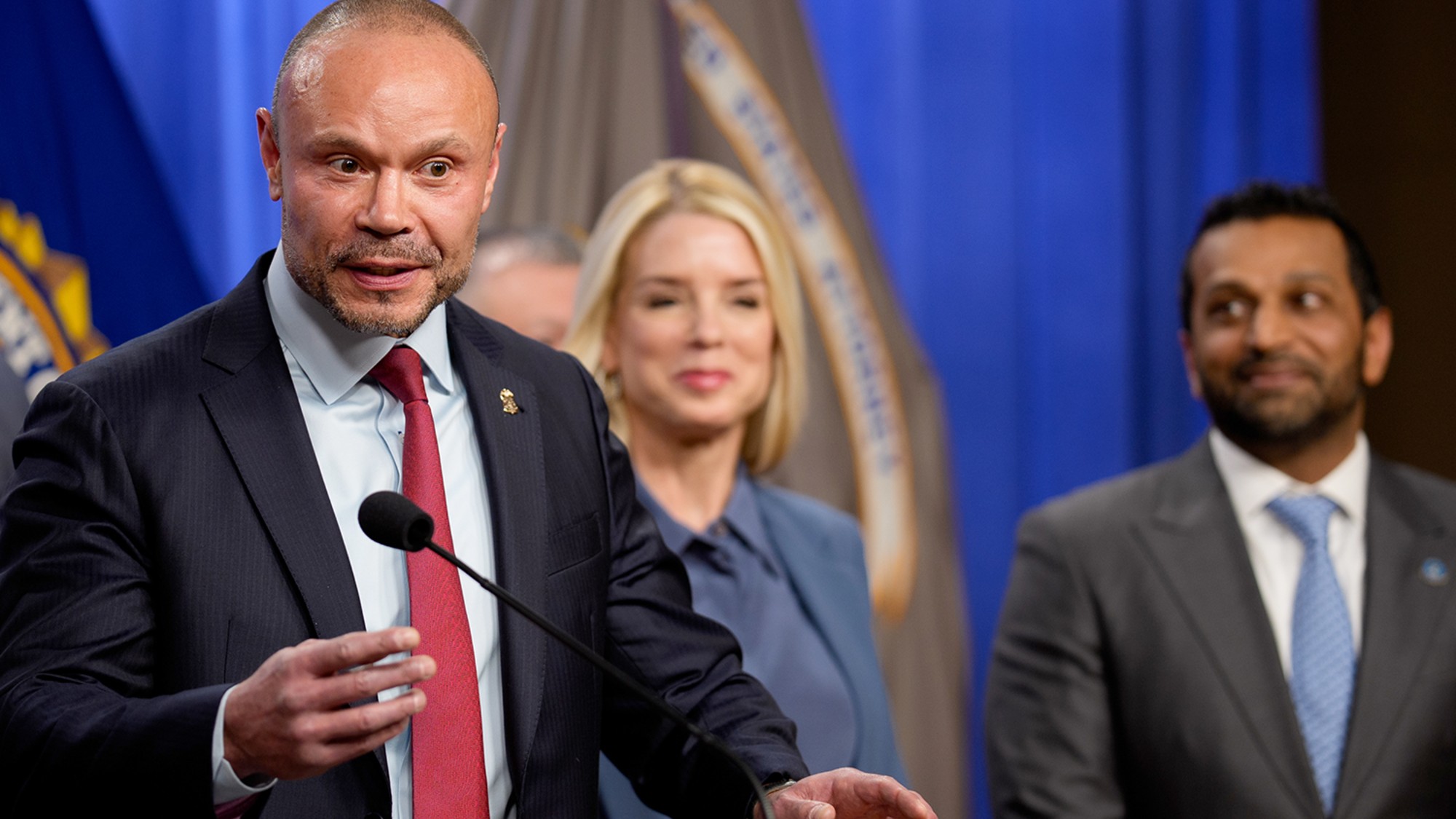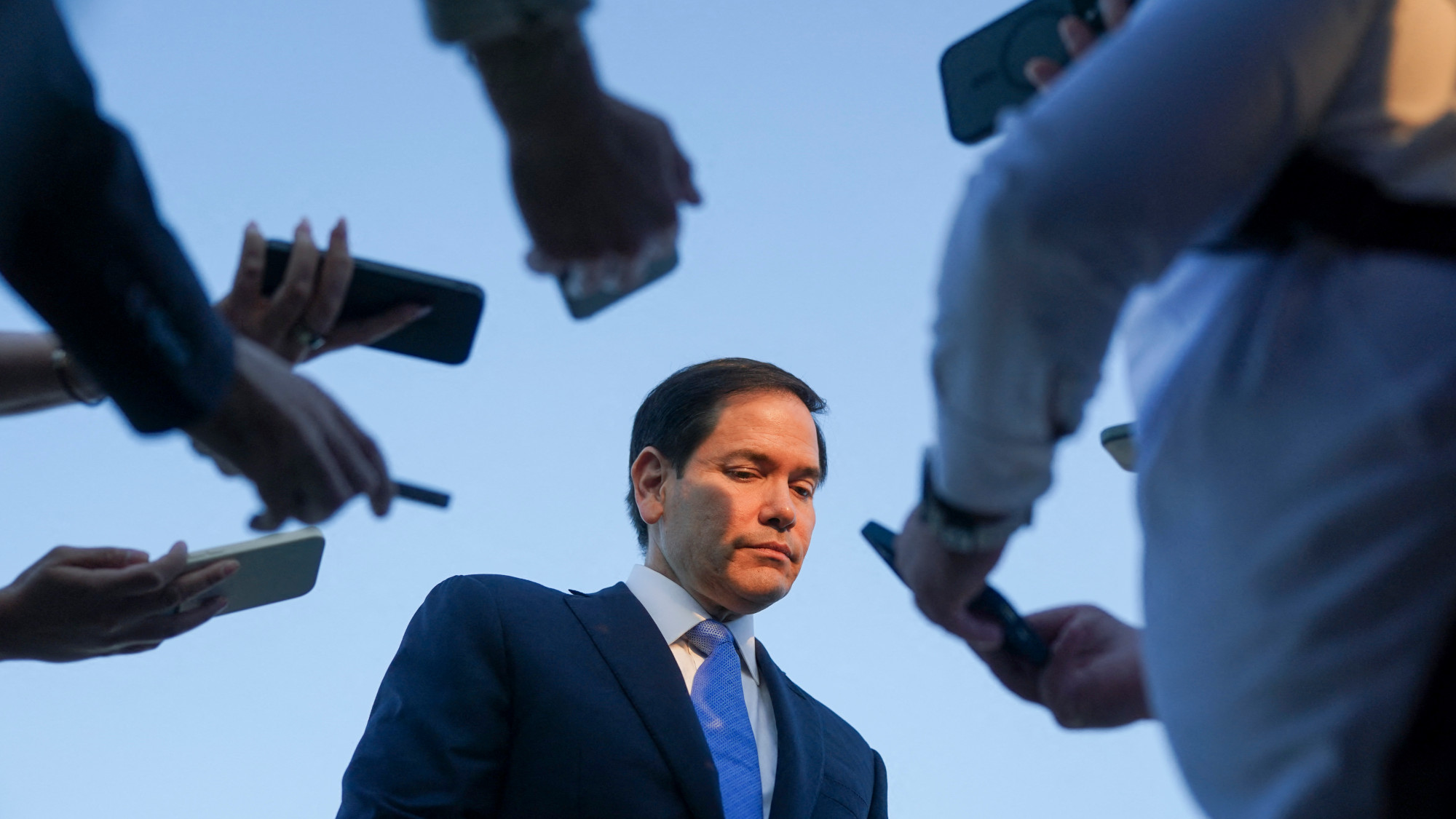Tommy Robinson: how he became voice of Britain's far-right
Activist sentenced to 18 months in prison for contempt of court after false claims about Syrian refugee

Tommy Robinson is back in jail for what a judge called a "blatant" case of contempt of court concerning a Syrian refugee.
Robinson, who claims he has been "silenced" by the state, has risen to become a figurehead of the British far-right and anti-Islam movements, building a platform of millions of followers with his videos that attract tens of millions of views.
Who is Tommy Robinson?
Born in Luton to an Irish mother and an English father, Robinson grew up as "part of the Bedfordshire working class in the 1980s and 1990s", said Thomas Peak in The New Statesman, in an area with a large Muslim minority. He left school at 16 to take on an engineering apprenticeship at Luton Airport.
The Week
Escape your echo chamber. Get the facts behind the news, plus analysis from multiple perspectives.

Sign up for The Week's Free Newsletters
From our morning news briefing to a weekly Good News Newsletter, get the best of The Week delivered directly to your inbox.
From our morning news briefing to a weekly Good News Newsletter, get the best of The Week delivered directly to your inbox.
He was first jailed in his early 20s for assaulting an off-duty police officer in 2005. But he had been involved in Luton Town football hooliganism from a young age, and he "borrowed" the name Tommy Robinson from a notorious hooligan, said the BBC. After leaving prison Robinson, a former member of the British National Party, started the EDL in response to anti-Afghanistan war protests by local Muslim groups in 2009, recruiting members from his connections in local football.
The EDL focused its practices on a claimed "Islamic threat", said The Guardian, but became defined by violent street protests. It turned Robinson into a "marginal figure in British politics", said The New York Times (NYT), but one who was not taken seriously.
He left the EDL in 2013 after his second imprisonment, claiming that he had recognised the "dangers of far-right extremism" and that he wanted to "counter Islamist ideology" and "not with violence but with better, democratic ideas".
What has he done since leaving the EDL?
Despite his claims, after leaving the EDL Robinson continued to "use multiple social media platforms to galvanise his supporters" and "whipped up anti-Muslim hatred and brought increasing numbers on to the streets", said The Guardian. He also began to make it a "lucrative earner" by accepting cash donations from his supporters online.
A free daily email with the biggest news stories of the day – and the best features from TheWeek.com
He was banned from Twitter in 2018 for "hateful conduct" and violating the platform's rules but was reinstated to the newly named X in 2023 after Elon Musk acquired the company. He has even received reposts of his messages from Musk. Labelling himself a "journalist", Robinson has amassed more than 1.1 million followers and the documentary (which contains the libellous claims that led him to prison) has more than 59 million views.
Robinson has also attracted international support, becoming a "poster boy" for far-right groups in Europe and the US, said The Times, as well as financial backing from overseas.
How influential is he?
While perhaps once aspiring to move into mainstream politics (he unsuccessfully ran for the European Parliament in 2019), Robinson has occupied a growing space in the "post-organisational far right" in Britain, exerting his views online to drum up support from a broader, though more disordered group of people.
Still, Robinson is having an impact on those in legitimate political parties despite being exiled to the extreme fringes. Reform UK, which won five seats in this year's general election, is still experiencing internal battles because of "dissenters within who have expressed sympathy for Tommy Robinson and his supporters", said UnHerd.
Nigel Farage explicitly distanced his Reform party from "the Tommy Robinsons and those who genuinely stir up hatred" following the riots earlier this year. However, a number of "high-profile" members of the party have "expressed their disapproval over the leadership’s anti-Robinson stance" and a "schism" appears to be "emerging at the heart of Reform UK". The presence of pro-Robinson supporters could "threaten to derail its growth as a credible and cohesive political outfit".
Richard Windsor is a freelance writer for The Week Digital. He began his journalism career writing about politics and sport while studying at the University of Southampton. He then worked across various football publications before specialising in cycling for almost nine years, covering major races including the Tour de France and interviewing some of the sport’s top riders. He led Cycling Weekly’s digital platforms as editor for seven of those years, helping to transform the publication into the UK’s largest cycling website. He now works as a freelance writer, editor and consultant.
-
 5 fairly vain cartoons about Vanity Fair’s interviews with Susie Wiles
5 fairly vain cartoons about Vanity Fair’s interviews with Susie WilesCartoon Artists take on demolition derby, alcoholic personality, and more
-
 Joanna Trollope: novelist who had a No. 1 bestseller with The Rector’s Wife
Joanna Trollope: novelist who had a No. 1 bestseller with The Rector’s WifeIn the Spotlight Trollope found fame with intelligent novels about the dramas and dilemmas of modern women
-
 Codeword: December 20, 2025
Codeword: December 20, 2025The daily codeword puzzle from The Week
-
 Inside Minnesota’s extensive fraud schemes
Inside Minnesota’s extensive fraud schemesThe Explainer The fraud allegedly goes back to the Covid-19 pandemic
-
 Trump wants to build out AI with a new ‘Tech Force’
Trump wants to build out AI with a new ‘Tech Force’The Explainer The administration is looking to add roughly 1,000 jobs
-
 Pipe bombs: The end of a conspiracy theory?
Pipe bombs: The end of a conspiracy theory?Feature Despite Bongino and Bondi’s attempt at truth-telling, the MAGAverse is still convinced the Deep State is responsible
-
 ECHR: is Europe about to break with convention?
ECHR: is Europe about to break with convention?Today's Big Question European leaders to look at updating the 75-year-old treaty to help tackle the continent’s migrant wave
-
 Trump: Losing energy and support
Trump: Losing energy and supportFeature Polls show that only one of his major initiatives—securing the border—enjoys broad public support
-
 Trump’s poll collapse: can he stop the slide?
Trump’s poll collapse: can he stop the slide?Talking Point President who promised to ease cost-of-living has found that US economic woes can’t be solved ‘via executive fiat’
-
 The military: When is an order illegal?
The military: When is an order illegal?Feature Trump is making the military’s ‘most senior leaders complicit in his unlawful acts’
-
 Ukraine and Rubio rewrite Russia’s peace plan
Ukraine and Rubio rewrite Russia’s peace planFeature The only explanation for this confusing series of events is that ‘rival factions’ within the White House fought over the peace plan ‘and made a mess of it’